 The Amsterdam News posted the following ‘Letter in support of Dr. Shakur’s clemency petition‘:
The Amsterdam News posted the following ‘Letter in support of Dr. Shakur’s clemency petition‘:
Dear Mr. President Obama:
We are writing to urge you to commute the sentence of Dr. Mutulu Shakur. He has served more than 30 years in prison for his conviction arising from his participation in the social justice movement of the past century. He is recognized as a leading member of the movement for human rights for African-Americans. Granting Shakur clemency will be an act of grace and healing that is much needed in our racially divided society today.
Shakur is 66 and has served 30-plus years. He has spent these decades behind bars because of his political beliefs and the actions motivated by those beliefs. Shakur was targeted and victimized by the now infamous Counter Intelligence Program as early as 1968. Shakur comes out of a complex and turbulent moment in American history, when civil unrest fractured our country into pieces.
His beliefs center around the desire for fundamental human rights, a desire for equitable laws and policies and a world without racial, gender and class divisions—goals very much like those upheld by the entire movement for civil and human rights, as well as the young people who constitute today’s Black Lives Matter Movement. Shakur has taken full responsibility for his life and actions. He has been a force for peace and for good during the many years of his incarceration, working against violence in the prisons and in his varied communities. He has developed hospice programs for incarcerated elders and created educational curriculums for young prisoners entering prison.
He has for many years publicly suggested that a Truth and Reconciliation Commission of elected officials, faith based and community activists and experts be convened to explore current racial disparities and to seriously address the issues of historical violence and racism through entirely peaceful and democratic processes that rely on the goodwill and good faith of people.
His people and community, his children and his grandchildren want and need him back home.
He has suffered the U.S. Parole Commission’s abuse of its authority. He has been denied parole eight times in a documented discriminatory manner. When he has appeared before the Parole Commission, he has been denied parole based on his use of language in signing his letters “stiff resistance,” a First Amendment right, not a call to arms, as the Parole Commission has misinterpreted, and because he defined himself as a political prisoner during his original trial. Finally, he has been denied parole based on the nature of the crime—something he can never change, and something that was taken into account at sentencing all those years ago.
Shakur has faced serious health challenges and continues to struggle to maintain his own well-being. His health challenges include severe heart disease, advanced diabetes and glaucoma. These conditions are life-threatening and would much better be dealt with outside prison. We do not want to see Shakur die while in custody.
All of his co-defendants have been released and are living and working as fully productive individuals. They are teachers, writers, service providers, counselors and artists.
To grant the release of Shakur would be a stunning and far-reaching act of mercy and love. This action would challenge the existing paradigm of punishment and revenge that has been responsible for so much of our current crisis of mass incarceration. His release would be a great step toward reconciliation. We recall your words when you walked out of Nelson Mandela’s cell in Robben Island: “The world is grateful for the heroes of Robben Island, who remind us that no shackles or cells can match the strength of the human spirit.” We feel the same way about the men and women who fought for us, who to this day are still living behind the walls of America’s prisons. We urge you to take action, correct this long overdue injustice and release Shakur.
Thank you,
Signed,
We The People in Support of Clemency for Dr. Mutulu Shakur
This letter was given to President Obama and has been endorsed by thousands of people. We are continuing to ask for support by signing his petition at https://campaigns.organizefor.org/petitions/grant-mutulu-shakur-executive-clemency.
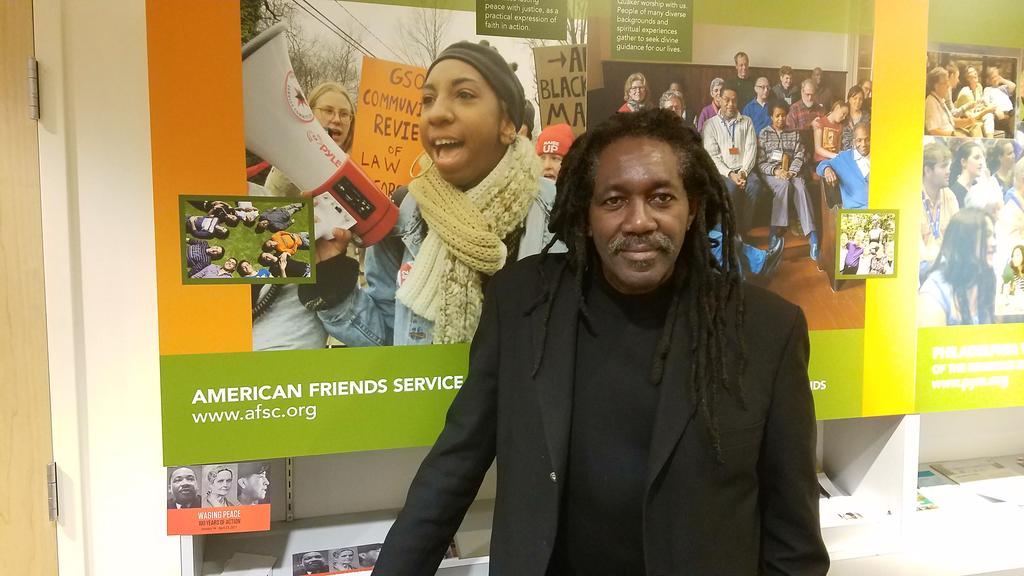 “I’m a Rastafarian-Quaker,” said Jondhi Harrell, easing back into his chair at the Friends Center, where the administrative office of Harrell’s nonprofit The Center for Returning Citizens (TCRC) is located.
“I’m a Rastafarian-Quaker,” said Jondhi Harrell, easing back into his chair at the Friends Center, where the administrative office of Harrell’s nonprofit The Center for Returning Citizens (TCRC) is located.
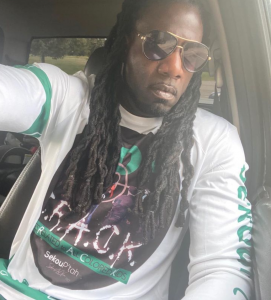 During the summer of 2011, I was reunited with my Abu & life long mentor, Dr. Mutulu Shakur. I had been serving 2 life sentences plus 30 years for conspiracy to possess crack cocaine, none of which were introduced in court nor found upon my person…nevertheless, I was given this time because of my ignorance of the drug laws, my inability to see into my educational, cultural and social background. Many people cannot remember or actually point to a particular individual or group of individuals that has helped them transition out of his or her negative past of immature decisions/choices. However, this is not my experience. Because for me it was Dr. Shakur who at the alpha of our much need reunion knew that he had to began educating me as to my ignorance, or I would become even more destructive than I was during such time as a teen high school drop-out, drug dealer, and so much more.
During the summer of 2011, I was reunited with my Abu & life long mentor, Dr. Mutulu Shakur. I had been serving 2 life sentences plus 30 years for conspiracy to possess crack cocaine, none of which were introduced in court nor found upon my person…nevertheless, I was given this time because of my ignorance of the drug laws, my inability to see into my educational, cultural and social background. Many people cannot remember or actually point to a particular individual or group of individuals that has helped them transition out of his or her negative past of immature decisions/choices. However, this is not my experience. Because for me it was Dr. Shakur who at the alpha of our much need reunion knew that he had to began educating me as to my ignorance, or I would become even more destructive than I was during such time as a teen high school drop-out, drug dealer, and so much more. 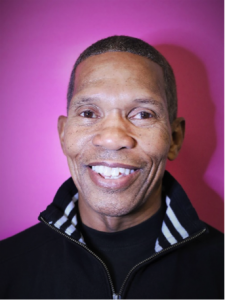 I am the above addressed, Leonard A. Rollock, Jr., also known as Petey or Pete Rollock. I am 65 years young…and what I trust is significant as a former federal prisoner/defendant who spent over 25 years straight in various federal penitentiaries and lower level federal facilities is that I bear witness that inmate intellectuals who genuinely care for others become more efficient minded people at what naturally feeds their spirit…and that is providing service.
I am the above addressed, Leonard A. Rollock, Jr., also known as Petey or Pete Rollock. I am 65 years young…and what I trust is significant as a former federal prisoner/defendant who spent over 25 years straight in various federal penitentiaries and lower level federal facilities is that I bear witness that inmate intellectuals who genuinely care for others become more efficient minded people at what naturally feeds their spirit…and that is providing service. Eleven years ago today I got in a car in Connecticut and drove 26 hours to New Orleans. It was four months since Katrina and I was heading to the area to volunteer as an EMT with a relief organization founded in the wake of the storm. For six months, I volunteered as a medic at gutting sites as well as an intake provider at a free clinic. For six months, I was worn down by the devastation created by the storm and more so by the underlying social conflicts it magnified. When I got in the car in May of 2006 to return north I felt utterly faithless. Then, on the way out of town, I received a letter from Dr. Mutulu and felt a renewed strength of purpose for the first time since my arrival. “It is important work you are doing,” he wrote. “It is an important place and time.” After a week at home, I drove back to New Orleans and stayed for two more years. That was the first letter I received from Dr. Mutulu.
Eleven years ago today I got in a car in Connecticut and drove 26 hours to New Orleans. It was four months since Katrina and I was heading to the area to volunteer as an EMT with a relief organization founded in the wake of the storm. For six months, I volunteered as a medic at gutting sites as well as an intake provider at a free clinic. For six months, I was worn down by the devastation created by the storm and more so by the underlying social conflicts it magnified. When I got in the car in May of 2006 to return north I felt utterly faithless. Then, on the way out of town, I received a letter from Dr. Mutulu and felt a renewed strength of purpose for the first time since my arrival. “It is important work you are doing,” he wrote. “It is an important place and time.” After a week at home, I drove back to New Orleans and stayed for two more years. That was the first letter I received from Dr. Mutulu.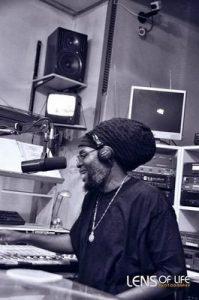
 The Amsterdam News posted the following ‘
The Amsterdam News posted the following ‘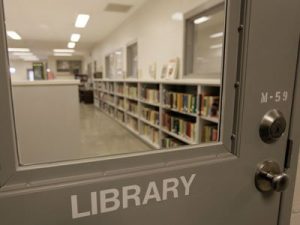 Whether the issue, topic, or subject is of revolutionary or political prisoner status, because the government has a way of mischaracterizing such titles, I feel it is best to know a person outside of what you may have read. I, myself have had the pleasure of meeting such a person who the government would prefer to never have to acknowledge or describe as a revolutionary or a political prisoner.
Whether the issue, topic, or subject is of revolutionary or political prisoner status, because the government has a way of mischaracterizing such titles, I feel it is best to know a person outside of what you may have read. I, myself have had the pleasure of meeting such a person who the government would prefer to never have to acknowledge or describe as a revolutionary or a political prisoner.